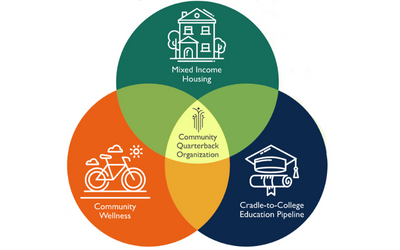
Purpose Built Communities and the Role of Public Health
Year: 2021 | Competency/Strategic Skill: Leadership and Systems Thinking | Priority Topic: N/A | Setting: On-Demand | Format: Live | Sponsor: Emory University/Central Office
Overview:
This is a 90-minute recording of a webinar held on March 31, 2021.
During this webinar, we will discuss the causes and impact of poverty as well as the role of public health in building cross-sectoral partnerships to improve social determinants of health. We will discuss the Purpose Built Community approach to building healthier communities and more equitable neighborhoods and the impact COVID-19 is having on the community development strategies.
